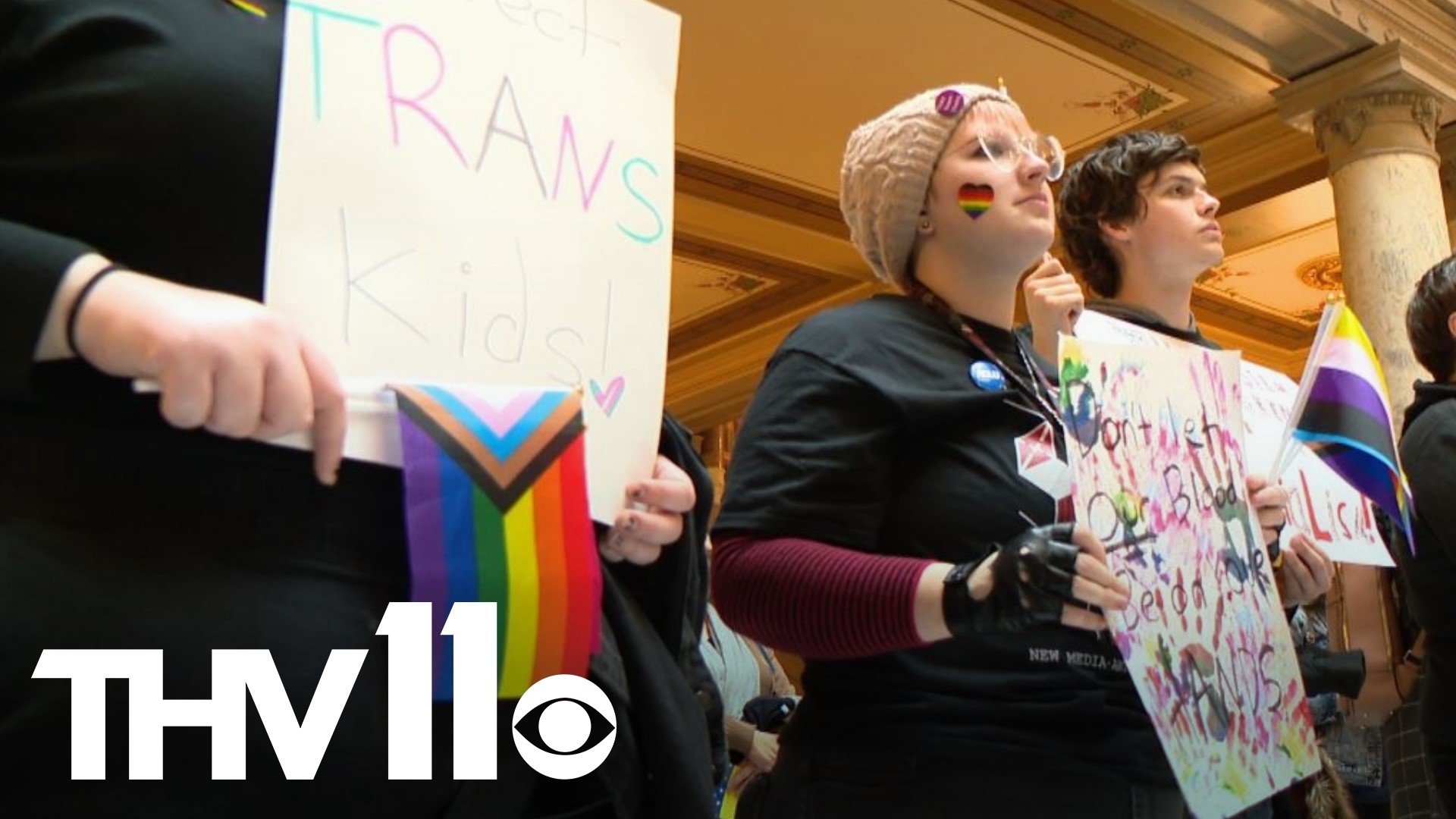LITTLE ROCK, Ark. — Arkansas Gov. Sarah Huckabee Sanders has signed into law legislation making it easier to sue providers of gender-affirming care for children, a move that could effectively reinstate a blocked ban on such care.
Sanders on Monday signed the new law, which won't take effect until this summer. It would allow anyone who received gender-affirming care as a minor to file a malpractice lawsuit against their doctor for up to 15 years after they turn 18. Under current Arkansas law, medical malpractice claims must be filed within two years of an injury.
Sixteen-year-old Kmo Mainard-O'Connell lives in Arkansas and identifies as transgender. They and their mom— have been struggling to understand why this law and bills like it have been coming from the capitol.
"I should feel protected by the government. I shouldn't feel like I have to fight them or explain to them why I get to exist," Kmo said.
Their mom Marie added, "People who literally don't understand our story and don't know what their medical history is like to say, this is how you need to treat your medical decisions. It's very discouraging."
Legal experts have said the change could close access to gender-affirming care for children by making it nearly impossible for providers to get malpractice insurance.
This puts some medical providers like social workers and sex therapist Courtney Frierson at high risk for a lawsuit in a confidential field.
"Am I to choose lawfully abiding by this legislation? Or am I to choose ethically abiding by my practice as a social worker?," Frierson questioned.
Supporters of the law, such as Arkansas State Senator Bart Hester explained that rather than limiting care, it would only protect children further.
"I think it's really important ultimately to protect our children, especially ones that are struggling with gender identity right now. When kids are 10, 11, 12, 13, 14,15, they just don't have the ability to make basic life choices, certainly that affect them for the very rest of their life," Hester explained.
Governor Sanders' team shared a statement that in part said, "The Governor has said that she supports bills that protect our kids and will support legislation that does just that."
The new law is among a growing number of bills that have been targeting transgender people, who have faced increasingly hostile rhetoric at statehouses.
At least 175 bills targeting trans people have been introduced in statehouses so far this year, the most in a single year, according to the Human Rights Campaign.
Little Rock transgender advocacy group, Intransitive believes the law hurts those supporters they say it's intended to protect.
"A lot of youth won't make it to 18. And that's the piece that we've been arguing. Suicide rates for the trans community in general and for trans youth are higher than [that of] cisgender people," Executive Director, Rumba Yamnu explained.
The bill was signed as a federal judge is considering whether to strike down a 2021 Arkansas law that would prohibit doctors from providing gender-affirming hormone therapy or puberty blockers to anyone under 18— or referring them to other doctors who can provide that care. No gender-affirming surgery is performed on minors in the state.
U.S. District Judge Jay Moody temporarily blocked the law in 2021. Arkansas was the first state to enact such a ban, and several states have approved similar restrictions. A ban in Alabama has also been blocked by a federal judge.
Meanwhile, Arkansas families like the Mainard-O'Connells are frustrated.
"I mean, there's so much work that needs to be done. And we're stuck, you know, asking questions about people's genitalia and bathrooms. And it just feels like we're not paying remotely the right attention," Marie described.
"We're people too, we have stories to tell... I think that things can get better. If we work at it, I do think that there is hope," Kmo said.
The new law won't take effect until 90 days after the Legislature adjourns this year's session, which isn't expected to happen until next month at the earliest.

